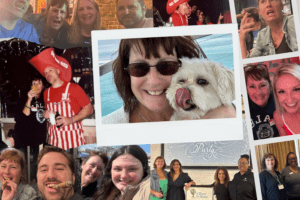
According to the Institute of Medicine report, untreated mental health conditions lead to poorer physical health outcomes, higher costs and longer hospital stays. Seniors with untreated depression, for example, are less likely to properly take medications for other problems like diabetes or hypertension.
Having a conversation regarding care for seniors with mental illness may not be an easy feat, but it is essential to ensuring the health and safety of your loved one. If you are unable to care for you senior loved one by yourself, then it may be necessary to bring in a home care agency with professional caregivers. Here are some tips that can help you start a difficult discussion:
Make sure they are taking their medication.
Some older adults struggle to take all their medications properly. Depending on which medications are missed, this can cause serious effects on an older person’s health. Ensure they take their medication on time with an electronic application or with the help of a certified medication aide.
Choose a time when both of you are calm.
Discussing the state of your loved ones mental health could be triggering for them and emotional for you. For this reason, it’s important that you handle the conversation as delicately as possible. Calmly let them know your concerns, and be sure to hear them out. They may not agree with everything you suggest, so be prepared to compromise.
Take resistance in stride.
When it occurs, shift the conversation to less inflammatory aspects of your concerns. Threats or emotional outbursts will only add anxiety and shut communication down. Remember not to take outbursts personally and know that they often stem from the feat of the unknown.
Take a breath and come back to the conversation
Your loved one may not want to discuss the topic when you first bring it up, the Mayo Clinic advises trying again later. The same goes for conversations that go wrong. If you feel yourself becoming emotional, the best advice is to take a break from the conversation and choose another time to discuss the topic.
Get the paperwork you need to properly care for your loved one.
In cases where an elderly parent is a danger to themselves or others, adult children may want to acquire a medical power of attorney for their elderly parent so they can make medical decisions on their behalf.





